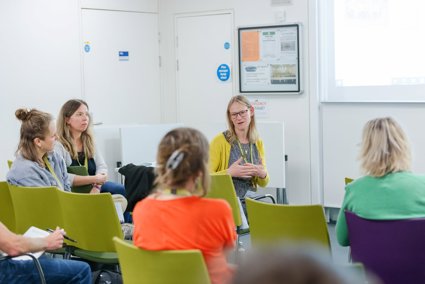
Suggested session format
In open sessions, ‘non-academics’ are invited as speakers and/or audience members. Session format can also be adapted to enable greater time for discussion and debate, and facilitate greater audience participation.
This type of session is designed to facilitate greater public involvement in the conference and support non-academics as participants in research and debate. It helps to broaden the perspectives and approaches represented at the conference. This format is particularly common in participatory research projects which include research associates and partners in the dissemination of project outputs. It is also useful for researchers working on issues of public importance wanting to engage with wider audiences beyond ‘the academy’.
Resources
For these sessions it is useful to remember that RGS-IBG Research Groups are entitled to invite a small number of non fee-paying guests to the conference (see Research Group guest registration). In previous years, Research Groups like the Participatory Geographies Research Group have also hosted conference sessions outside of the main conference venue to enable wider public participation.
Tips for running the session
Session organisers should contact relevant Research Groups and the conference organisers at RGS-IBG to discuss the availability of guest passes for the conference session.
Non-academic participants can be invited directly by the session organisers, who should make it clear in the call for papers that this form of participation is welcomed.
If necessary, calls for papers should be circulated beyond the usual academic email lists. Sessions held outside of the main conference venue can be widely publicised in the local community and relevant press.
Experience shows the value of helping participants to feel welcome, valued and respected in a setting where they often feel ‘out of their depth’. They can be encouraged to present in a style that they feel comfortable with, and all speakers and participants should be encouraged to avoid jargon and use plain English.
The legitimacy of all speakers (and audience) contributions should also be reinforced before the session to avoid any sense of academic hierarchy. For example, it is important to ensure that presenters do not feel they need to apologise for speaking in a ‘non-academic’ manner.
It is also important to spend time discussing any concerns that participants have before the day of the conference, and to be flexible in your ideas for the session format, so that you can cater for participants’ needs.